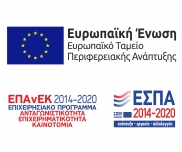Discussing top trends in 2022 for the Wealth Management sector
Post-pandemic creates opportunities for Wealth Managers and Family offices, according to a recent study by Capgemini. The great wealth transfer leads to actions such as hyper-personalisation so as to target the new age investors. Firms need to deploy exciting ways to gain the audience’s attention and win new clients and these may include the use of digital tools, delivery of a personalised advice along with investing in loyal clientele.
In addition, at Celent there are areas of investment prioritisation, that will be on the rise in 2022. These include hybrid advice, digital onboarding and modern self-directed platforms.
All these are developing around the main concept which is the frictionless advisor/client journey. Investment returns need to show so as to deliver a competitive service. In addition, there is also the need to invest in RPA and FinΤech whilst RegTech is still an area of interest.
It seems that the pandemic paved the way to adopting new technologies and full automation whilst ensuring secure business. The wealth management firms need tools to further enable their prospecting, risk profiling, AML/KYC, easy account opening, document management, e-signature, portfolio management and reporting in one workflow stream.
Transitioning to automate wealth management processes does not mean customers lose the personal touch. This can be easily delivered through dedicated and personalised service, as technology and tools aim to save time and make personalisation easier to achieve.
ESG focused investment products
Apart from technology tools, wealth management firms are recently involved in delivering new fund types. As ESG becomes a key topic for the industry, customers are becoming more selective on ESG-related funds (according to Oliver Wyman) and want to satisfy higher needs like fulfilling purpose, creating impact, building trust and sense of community, and even triggering joy which means that ESG is changing the investment landscape to deliver a differentiated investment experience rather than just a product.
Virtual is the new reality
According to Oliver Wyman, based on previous research prior to the pandemic, a fully virtual asset manager could operate with an approximate 40% lower cost base. The experience over the last two years has further enhanced this while most firms are more comfortable with a hybrid working model, in some cases might even digitise and outsource every aspect of their business. For some firms a hybrid working model is working well whilst in others abandoning the office and in-person contact, relentlessly digitising, outsourcing their business might seem a better approach.
Digital transformation investments are paying off
In the recent Deloitte study, an overwhelming majority (85%) of their respondents that use artificial intelligence (AI)-based solutions in the pre-investment phase either strongly agreed or agreed that AI helped them generate alpha digital transformation.
Download the Whitepaper








